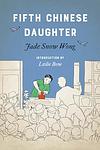The Greatest "Nonfiction, Fiction, Asian History" Books of All Time
Click to learn how this list is calculated.
This list represents a comprehensive and trusted collection of the greatest books. Developed through a specialized algorithm, it brings together 300 'best of' book lists to form a definitive guide to the world's most acclaimed books. For those interested in how these books are chosen, additional details can be found on the rankings page.
Genres
Asian History is a category of books that focuses on the historical events, cultures, and societies of Asia. This category includes books that cover a wide range of topics, including the ancient civilizations of China, Japan, and India, the rise and fall of empires, the impact of colonialism, and the modernization of Asian countries. It also includes books that explore the social, political, and economic changes that have shaped the region over time. Overall, Asian History provides readers with a comprehensive understanding of the rich and diverse history of Asia.
Countries
Date Range
Reading Statistics
Click the button below to see how many of these books you've read!
Download
If you're interested in downloading this list as a CSV file for use in a spreadsheet application, you can easily do so by clicking the button below. Please note that to ensure a manageable file size and faster download, the CSV will include details for only the first 500 books.
Download-
1. Fifth Chinese Daughter by Jade Snow Wong
This autobiographical account provides a vivid portrayal of Chinese-American life in the early 20th century through the eyes of a young girl growing up in San Francisco's Chinatown. The narrative follows her journey as she navigates the complexities of traditional Chinese family values and the American way of life, striving for educational and personal independence. The protagonist's struggle to reconcile her dual cultural heritage is compounded by her ambitions, as she seeks to assert her identity and pursue her dreams amidst the expectations of her family and community. Her story is one of resilience and self-discovery, offering insight into the immigrant experience and the challenges of cultural assimilation.
-
2. Guests Of The Sheik by Elizabeth Warnock Fernea
The book is an autobiographical account of a young American woman's experience living in a small Iraqi village in the late 1950s. As the wife of an anthropologist, she immerses herself in the local culture, particularly the lives of the women, navigating the complexities of gender roles, traditions, and the veil. The narrative offers an intimate glimpse into the domestic lives, social customs, and familial bonds of the villagers, while also reflecting on the author's own cultural assumptions and the process of cross-cultural understanding. Through her journey, the author gains a deeper appreciation for the community's way of life and confronts the challenges of being an outsider in a tightly-knit society.
-
3. Japanese Philosophy by John C. Maraldo, Thomas P. Kasulis, James W. Heisig
This book provides a comprehensive overview of Japanese philosophy, exploring its unique characteristics and its evolution through history. It delves into the diverse intellectual traditions of Japan, including both well-known philosophical schools and lesser-known but equally significant ideas. The text examines how Japanese philosophy has been influenced by and has interacted with other philosophical traditions, particularly Western philosophy, while also highlighting its distinct approach to fundamental philosophical issues such as ethics, aesthetics, and the nature of reality. Through a detailed analysis, the book offers insights into how Japanese philosophical thought has contributed to broader philosophical discourse and how it reflects the cultural and historical context of Japan.
-
4. Empire Of Cotton: A Global History by Sven Beckert
"Empire of Cotton" by Sven Beckert is a comprehensive global history of cotton, exploring its impact on the world economy, politics, and society from the 18th century to the present day. Beckert argues that cotton played a crucial role in the development of capitalism, colonialism, and imperialism, and that its production and trade were intimately linked to the exploitation of labor, the growth of slavery, and the rise of industrialization. The book offers a fascinating and thought-provoking perspective on the complex and often violent history of cotton and its enduring legacy in the modern world.
Reading Statistics
Click the button below to see how many of these books you've read!
Download
If you're interested in downloading this list as a CSV file for use in a spreadsheet application, you can easily do so by clicking the button below. Please note that to ensure a manageable file size and faster download, the CSV will include details for only the first 500 books.
Download


